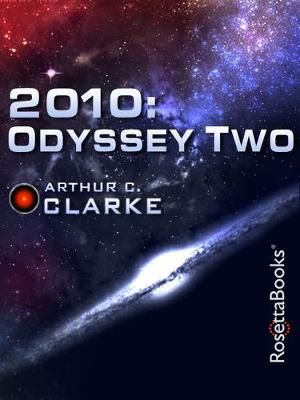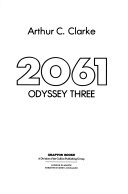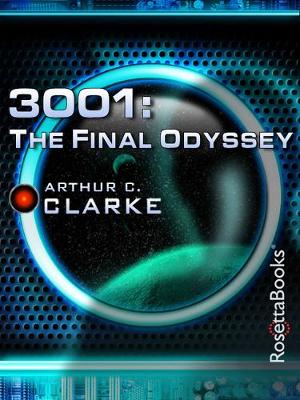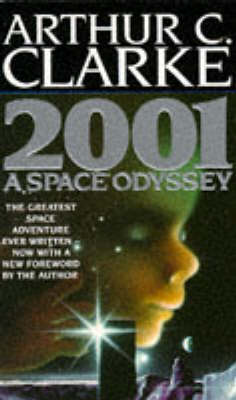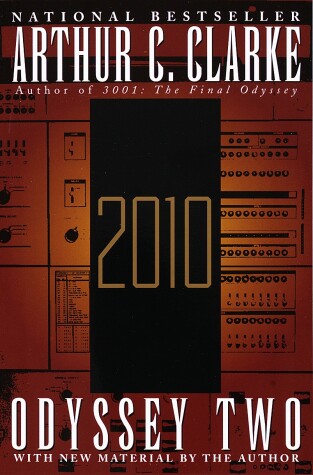Space Odyssey
3 primary works • 5 total works
Book 2
The Leonov is beaten to Jupiter by a Chinese mission which lands on Jupiter's moon, Europa, and falls victim to its unknown terrain. The last astronaut to die on the alien surface broadcast a message - there is life on Europa.
Book 3
Arthur C.Clarke's space saga contines in 2061, when an Earth vessel landing on Halley's Comet marks the beginning of another confrontation between Heywood Floyd and David Bowman - or whatever Bowman has become - a newly independent HAL and the unseen alien power that controls the destiny of Earth. Arthur C.Clarke, one of most popular science fiction writers of the 20th century, has written over 50 books including "The City and the Stars", "Rendezvous with Rama", "Childhood's End", "2001: A Space Odyssey" and "2010: Odyssey Two".
Book 4
Now approaching the millennium, the light of Lucifer is extinguished and for the second time in four million years, the Monolith awakes. The limitless power of an alien technology has decided what part humanity must play in the evolution of the galaxy.
The classic science fiction novel that captures and expands on the vision of Stanley Kubrick’s immortal film—and changed the way we look at the stars and ourselves.
From the savannas of Africa at the dawn of mankind to the rings of Saturn as man ventures to the outer rim of our solar system, 2001: A Space Odyssey is a journey unlike any other.
This allegory about humanity’s exploration of the universe—and the universe’s reaction to humanity—is a hallmark achievement in storytelling that follows the crew of the spacecraft Discovery as they embark on a mission to Saturn. Their vessel is controlled by HAL 9000, an artificially intelligent supercomputer capable of the highest level of cognitive functioning that rivals—and perhaps threatens—the human mind.
Grappling with space exploration, the perils of technology, and the limits of human power, 2001: A Space Odyssey continues to be an enduring classic of cinematic scope.
From the savannas of Africa at the dawn of mankind to the rings of Saturn as man ventures to the outer rim of our solar system, 2001: A Space Odyssey is a journey unlike any other.
This allegory about humanity’s exploration of the universe—and the universe’s reaction to humanity—is a hallmark achievement in storytelling that follows the crew of the spacecraft Discovery as they embark on a mission to Saturn. Their vessel is controlled by HAL 9000, an artificially intelligent supercomputer capable of the highest level of cognitive functioning that rivals—and perhaps threatens—the human mind.
Grappling with space exploration, the perils of technology, and the limits of human power, 2001: A Space Odyssey continues to be an enduring classic of cinematic scope.
“A daring romp through the solar system and a worthy successor to 2001.”—Carl Sagan
Nine years after the disastrous Discovery mission to Jupiter in 2001, a joint U.S.-Soviet expedition sets out to rendezvous with the derelict spacecraft—to search the memory banks of the mutinous computer HAL 9000 for clues to what went wrong…and what became of Commander Dave Bowman.
Without warning, a Chinese expedition targets the same objective, turning the recovery mission into a frenzied race for the precious information Discovery may hold about the enigmatic monolith that orbits Jupiter.
Meanwhile, the being that was once Dave Bowman—the only human to unlock the mystery of the monolith—streaks toward Earth on a vital mission of its own . . .
“Clarke deftly blends discovery, philosophy, and a newly acquired sense of play.”—Time
“2010 is easily Clarke’s best book in over a decade.”—The San Diego Tribune
Nine years after the disastrous Discovery mission to Jupiter in 2001, a joint U.S.-Soviet expedition sets out to rendezvous with the derelict spacecraft—to search the memory banks of the mutinous computer HAL 9000 for clues to what went wrong…and what became of Commander Dave Bowman.
Without warning, a Chinese expedition targets the same objective, turning the recovery mission into a frenzied race for the precious information Discovery may hold about the enigmatic monolith that orbits Jupiter.
Meanwhile, the being that was once Dave Bowman—the only human to unlock the mystery of the monolith—streaks toward Earth on a vital mission of its own . . .
“Clarke deftly blends discovery, philosophy, and a newly acquired sense of play.”—Time
“2010 is easily Clarke’s best book in over a decade.”—The San Diego Tribune
